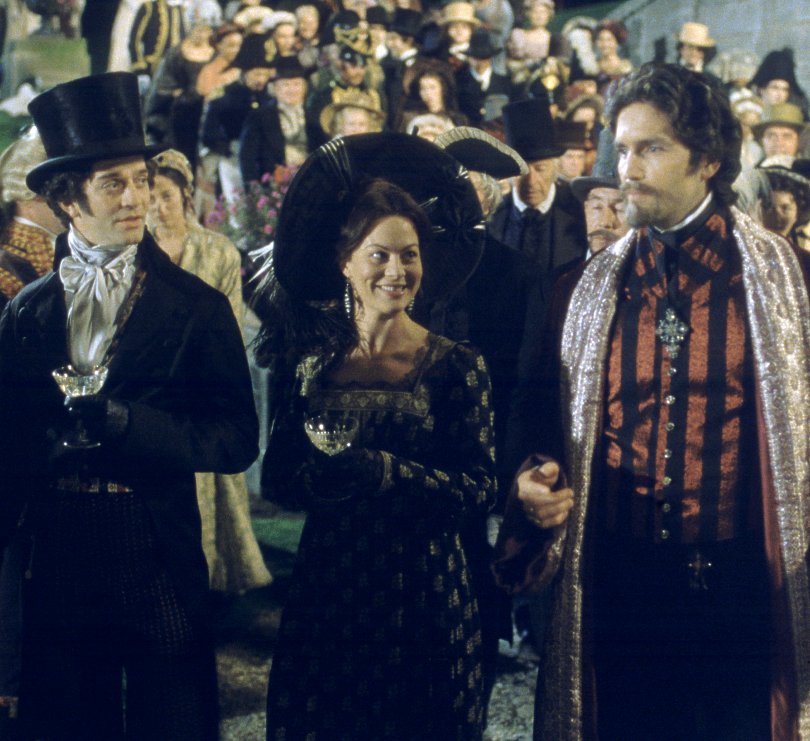
Thus when he and the Count enter Marseilles and the Count asks if Maximilien had something he needed to do in town, Maximilien replies, "I will go weep upon my father's grave." I picture the Count rolling his eyes when Maximilen's head is turned. In the final chapters of the novel, he managed to redeem himself by being so melodramatic and pathetic that he became humorous. The more I saw of him, the more uninteresting he became. But after his meeting with the Count, Maximilien's character set off on a downward spiral.

To top it all off, he was kind to the Count - that was nice. The first time I met Maximilien, I was inclined to like him - he was brave and morally upright, and the scene with his father was touching. Maximilien and Valentine are two peas in a pod: uninteresting, uninspiring, and not at all overbold. And, in the event, they don't actually go through with it. Only when he threatens to kill himself upon her marriage does Valentine agree to run away with him, but with the stipulation that they will wait until the positively last second. When her star-crossed lover (we'll get to him in a moment) tries to persuade her to run away with him, Valentine is adamant about the fact that she will not stand up for herself. A dutiful daughter - there's nothing wrong with that - Valentine absolutely refuses to stand up for herself and instead allows herself to be coerced by the men in her life - whether that's her father, her grandfather (but let's face it: her grandfather is awesome so there's no problem there), or her melodramatic and somewhat pathetic lover whom I'm not even convinced she loves. She's a bit like Cinderella, but without the spunk.

This juxtaposition is interesting and holds a lot of promise, but in all other respects, Valentine is an uninteresting character. If Eugenie is Artemis, virgin goddess of the hunt, then Valentine is her softer counterpart, named for the saint who gives his name to Valentine's Day, and thus representative of traditional feminine love. One of Albert's friends compares Eugenie to Artemis, the chaste huntress from Greek mythology. Dumas juxtaposes the two girls several times, pointing out Valentine's gentle, feminine nature beside Eugenie's bold, more masculine nature. Where Eugenie stands up and kicks butt, however, Valentine sits down and faints. Both girls find themselves in a similar situation: their fathers have arranged a marriage for them to a man they do not love. Valentine is in many ways Eugenie's foil. So if you get the sense further on in this review that I'm criticizing Dumas and his novel, please know that I hold the author in very high regard and loved the novel very much. The compelling nature of many of the characters and the fast-paced plot kept me up reading the book for days on end and often late into the night - and when that happens with a book published over 170 years ago, you know there's something good there.

In reviewing Dumas' masterpiece, I first want to make it clear that I thoroughly enjoyed the novel and gave it four stars on g oodreads. And don't even bother reading the unabridged version - seriously, who does that? - be a hipster and read the whole thing. I found his translation lively, poetic, and moving. As the owner of the bookstore where I bought the 1276 page novel informed me, Buss grew up speaking both French and English in his household, so clearly he knows what he's doing. If you're looking into reading The Count of Monte Cristo for the first time, I cannot recommend highly enough Robin Buss' translation. This means that in the space of about one month I lived through 29 years. On September 30, around 11:00 pm, I finished The Count of Monte Cristo. On August 24, I began reading The Count of Monte Cristo.


 0 kommentar(er)
0 kommentar(er)
